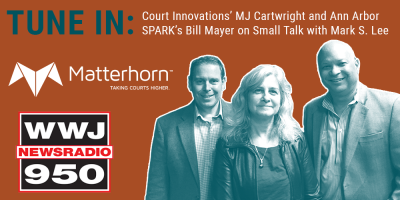Abstract:
Online case resolution (OCR) systems have the potential to dramatically increase access to our justice system. Part I introduces the concept of an OCR system, how it might work in practice, and its likely impact on courts and citizens. Part II argues that OCR systems can lower many of the barriers to going to court by reducing the need for face-to-face resolution of disputes; cutting the amount of time needed for hearings; mitigating litigant confusion and fear; allowing asynchronous scheduling that can accommodate work and child-care schedules; and offering a more reliable and easier-to-use means for litigants to voice their views. These advantages should especially benefit those of lower socioeconomic status, who often suffer disproportionately under the status quo. Part III contends that OCR systems need not compromise a judge’s or a prosecutor’s decision-making process but can actually enhance both. OCR systems can provide more, better, and easier-to-use information, and by removing a litigant’s appearance (race, gender, weight, etc.) from a judge’s consideration, can render outcomes less subject to implicit biases.
Download the full paper here.
Author Archive: Saaed Fattahi
Livonia traffic tickets now can be mediated online
 The days of having to go before a magistrate over a traffic ticket may be over for some motorists who receive one in Livonia.
The days of having to go before a magistrate over a traffic ticket may be over for some motorists who receive one in Livonia.
The 16th District Court has launched a program that will allow some drivers who are issued a citation to resolve their cases through the Internet. Drivers are able to enter their information into an online portal and try to come to a conclusion with their ticket without having to take time off of work and come to the Livonia courthouse on Five Mile.
It would allow drivers to enter comments if they are relevant and submit them. Tickets must be current, having been issued within two weeks of the motorist submitting an online mediation request.
Still time to clear up tickets in Wayne District Court

Wayne 29th District Court Judge Laura Mack
The Wayne Court is now starting a online program aimed at letting people resolve minor infractions without having to spend time in court.
Court Innovations’ Matterhorn is an online platform aimed at enabling citizens, police, prosecutors and judges to conveniently work towards resolving minor infractions.
As in the case of the unresolved civil and misdemeanor infractions, Gable said people are often afraid to come to court about minor infractions for fear of being arrested.
Through Matterhorn, people with failed to appear warrants can request new court dates or pay in full or make arrangements for a new payment plan if they have failed to meet a prior payment plan.
“We started working with Court Innovations in 2015 to allow people to resolve infractions such as speeding tickets online,” said Wayne 29th District Court Judge Laura Mack. “This had been proven to be very popular. Expanding the program to include removal of warrants is a major convenience for people who are working or have transportation issues.”
Voice of the Citizen Heard Online in East Lansing
 Authored by Denise McCrimmon, 54B District Court Administrator
Authored by Denise McCrimmon, 54B District Court Administrator
Most of us have had a parking ticket at one time or another. In cases where we ran out of change (or didn’t get there in time to add more), most of us accept and pay the ticket as a normal course of action. However, not all parking tickets (or citizen’s reactions to them) are created equal.
Matterhorn: Reaching New Heights in 2016
 In January of 2015, Court Innovations launched pilot projects in two Michigan courts: Washtenaw County and Bay County. These two courts led the way and embraced the opportunity to resolve their high-volume lesser criminal/traffic offense cases through Matterhorn, our online resolution platform.
In January of 2015, Court Innovations launched pilot projects in two Michigan courts: Washtenaw County and Bay County. These two courts led the way and embraced the opportunity to resolve their high-volume lesser criminal/traffic offense cases through Matterhorn, our online resolution platform.
Court Innovations on WWJ 950’s Small Talk

Left to right: Bill Mayer, MJ Cartwright, Mark Lee
Listen to the full interview here.
Transcript:
Mark Lee: This last segment is called success stories and brought to us by Ann Arbor Spark out of Ann Arbor, Michigan. We appreciate their support in stepping up and working with Small Talk and we try to feature things that they’re doing and identify clients that they work with and share their story with us. So Ann Arbor Spark, we thank you. With that said, we have 2 guests in the studio. Bill Mayer, he’s the VP of Entrepreneurial Services. He has founded and exited multiple startups in technology and finance sectors. His areas of expertise with Ann Arbor Spark are in finance, securities, and quantitative analysis. Now he has worked with several businesses covering a broad range of industries. We also have MJ Cartwright and she is the CEO of Court Innovations. She’s a hands-on executive who has worked in many industries leading startup initiatives including manufacturing, education, training, and healthcare medical devices. Bill, MJ, good morning. Thanks for joining us.
The Next Idea: Virtual court appearances could diminish bias, improve efficiency

Credit Flickr/Joe Gratz / http://michrad.io/1LXrdJM
Listen to the full interview here.
Traffic tickets and low-level misdemeanors aren’t supposed to ruin lives and cost taxpayers millions.
For most of these offenses, paying a fine or arguing a case before a judge should be a fairly straightforward, low-hassle matter.
Yet there are plenty of reasons why these minor violations end up as major problems.
People can’t afford to pay the fines. Taking off work in order to appear in court can be difficult, especially for people who have children, mobility issues, or inflexible jobs. Fears of bias – racial, economic, gender – in the courtroom can prevent some from even addressing their legal issues until they’re compelled to do so. And for a person who possesses even a tiny element of a lack of self-confidence (hint: we all do), courts are intimidating places.
Court Innovations on the Lucy Ann Lance Show
 Listen to the full interview here.
Listen to the full interview here.
Transcript:
Lucy: Could the answer to a backlog of court cases be found online? Michigan counties, including Washtenaw and several others, are now using an online platform to improve court efficiency and access to justice. Co-founder of Court Innovations who is supplying this is MJ Cartwright and she joins us this morning to talk about how this works. What kinds of cases are we talking about doing online with this platform?
MJ: We’re talking about cases such as outstanding warrants that people may have such as failure-to-appear or failure-to-pay, and also specific traffic tickets.
East Lansing 54B District Court Offers Online Arrest Warrant Resolution
 EAST LANSING, Mich. — The East Lansing 54B District Court has added another online platform with Court Innovations Matterhorn.
EAST LANSING, Mich. — The East Lansing 54B District Court has added another online platform with Court Innovations Matterhorn.
Through this new program, defendants with outstanding arrest warrants for failure to pay fines and costs may resolve the matter with the court online. Prior to this new online solution, a defendant could only appear in front of the judge to get the warrant canceled.
Individuals using this new platform will be asked a series of qualifying questions to determine whether they are eligible to resolve the arrest warrant online. If eligible, a defendant can submit their request online, where it will be reviewed by court personnel to confirm the warrant is for failure to pay fines and costs. From there, the defendant can pay and have their warrant canceled and receive notification via text or email that the case is resolved and closed.
East Lansing 54B District Court Chief Judge Andrea Andrews Larkin approves of the customer service aspect of the program.
Read more…
Saving Time, Saving Money, Saving the System

Bob Ciolek, 14A Court Administrator
The district courts of Michigan have stuck to the same routine for too long. Civilians take time off of work to wait hours in a courtroom, only to have a 5 minute conversation to negotiate a minor traffic violation. Police officers spend entire days in courthouses instead of engaging the community, enforcing the law and protecting the public. Judges and magistrates have less time to work with defendants who have broken more serious and concerning laws. Meanwhile, it is up to the court staff to smooth out this entire process and manage the backlogged court docket.
Not only is this process inefficient for everyone involved, it wastes valuable county resources. But there is a better way.
14A District Court in Washtenaw County recently adopted Matterhorn, an online platform that allows citizens, law enforcement, and the magistrate to resolve traffic violations. With this system, we have improved case turnaround from months to days, freeing up the court docket. And we’ve given time back to law enforcement officers who no longer have to appear in court to answer minor citations. Lastly, it has freed up valuable time for the judge and magistrate.
